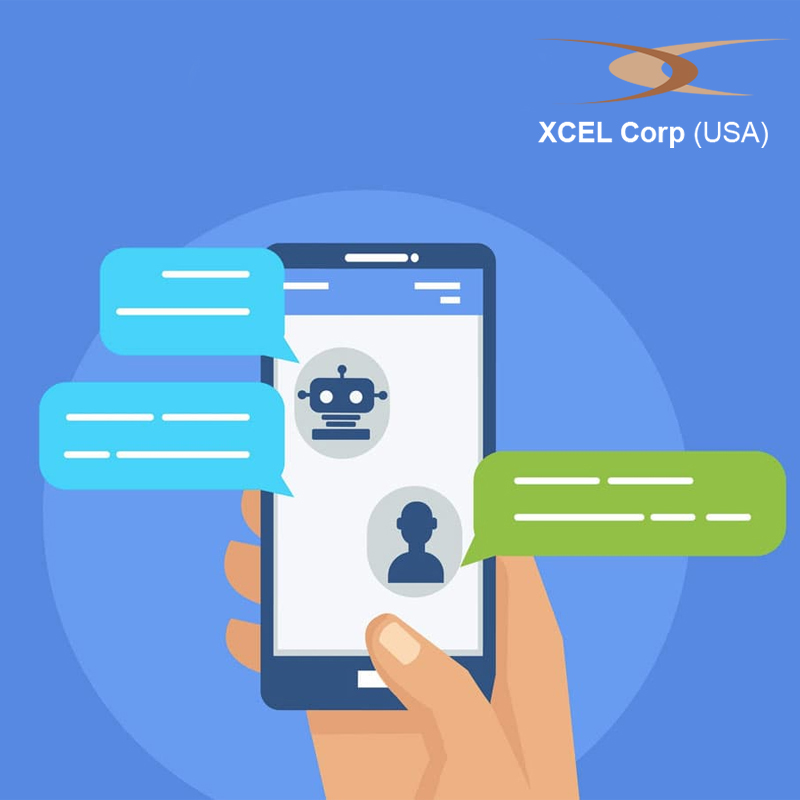 If you have seen the movie Iron Man then you would have been awed by J.A.R.V.I.S. And that is exactly how an Intelligent Apps is put to optimal use. The wonderfully depicted (or not depicted) J.A.R.V.I.S seems to be able to execute everything for Iron Man, beat people up, and even maintain his estate. An acronym for ‘Just Another Rather Very Intelligent System’, J.A.R.V.I.S, today might seem utopic but we are much closer to this high-level intelligence than we think. Intelligent apps are already here, and there are more to come, just around the corner.
If you have seen the movie Iron Man then you would have been awed by J.A.R.V.I.S. And that is exactly how an Intelligent Apps is put to optimal use. The wonderfully depicted (or not depicted) J.A.R.V.I.S seems to be able to execute everything for Iron Man, beat people up, and even maintain his estate. An acronym for ‘Just Another Rather Very Intelligent System’, J.A.R.V.I.S, today might seem utopic but we are much closer to this high-level intelligence than we think. Intelligent apps are already here, and there are more to come, just around the corner.
XCEL Corp creates intelligent apps that are a culmination of data science and application development. These are an amalgamation of the customer, product and operational insights that are embedded with predictive analytics. They enable key user decisions while continually learning from their interactions thus becoming even more relevant and adding more value to the user.
What are intelligent apps or I-Apps?
When machine learning technology is used to formulate apps that provide rich and personalized user experiences, they are known as I-Apps. A mixture of historical and real-time data is applied to build an intelligent application to continuously improve user experiences. Several trends are evolving in the intelligent app ecosystem. For one, machine learning models no longer require massive computational power. At the same time, developers can take advantage of machine learning techniques due to their ease of use besides using it as a development paradigm for applications. Simultaneously, there has been a proliferation of platforms on which these intelligent apps can be developed and therefore, various layers of technology are used to build them. With the rise of I-Apps, a major shift in market dynamics is expected, creating newer opportunities for both startups and enterprises alike.
Features of I-Apps in mobile
It is predicted that application development will soon meet AI, IoT, and big data analytics in the next generation of mobile applications. If these have not already happened, when they will, I-Apps are bound to learn from data sources and user engagements to become more useful and significant.
XCEL Corp curates I-Apps in the form of virtual assistants and chatbots along with several platforms. Even the recommendation engines on e-commerce sites are some of the best instances of I-Apps created by us.
Intelligent Apps are predominantly data-driven. This means they evaluate several other data sources such as beacons, sensors, user interactions and much more to convert large quantities of data into valuable and insightful information.
A device’s feature is better-used by an intelligent app to deliver highly-relevant suggestions, proactively, to the user. The apps are so pre-emptive that the user no longer reaches out to them – rather the app reaches out to the user.
Outputs are constantly improved as intelligent apps are continuously adapting to machine learning.
I-Apps are also action-oriented where they anticipate user behaviors with the help of predictive analytics to deliver actionable data.
The lines between native apps and mobile apps are blurring due to omnichannel, progressive web applications or PWAs.
Intelligent applications are the future
Companies are already choosing the intelligent application approach and veering away from big data. While data is the basic element in computing, enterprises are expanding the use of cloud and machine learning to create more intelligent systems. This, even when Hadoop and big data were recently utilized to capture data at a larger scale. While using all the incoming real-time records, the newer generation of intelligent applications has become adept at responding to modified scenarios to formulate more beneficial outcomes. This also includes delivering rich customer experiences through digital transformations as required by companies. XCEL Corp creates intelligent applications, with which companies can respond to changing conditions in real-time.
Sectors
Some of the biggest industry sectors, today, are using intelligent applications through converged technologies. Data derived from a variety of sources is processed to provide real-time experiences with the help of the latest machine learning techniques. When artificial intelligence is added to this, usefulness appears. Some examples are as follows:
Incorporating I-Apps into finance will forge newer limits of digital wealth management, portfolio management, and other wealth-based products.
Usage in the energy sector includes the capture of IoT pipelines emitting sensor data and processing them with the help of intelligent applications. This also includes obtaining and analyzing real-time data with a machine learning model. All of this help mitigate downtimes, thus spelling savings for global enterprises.
Understanding I-Apps
Last year, we saw an explosion of capabilities with Artificial Intelligence. If we were to go a step further to exhibit AI through software using machine learning, then we have one of the most intelligent apps in our hands. While AI depends on a specific technology, there is some form of sensory input involved through which it can provide selected self-improving outputs. While the underlying concept of AI lies in the amalgamation of machine learning, deep learning, and NLP or natural language processing, these are also being embedded into business software applications augmenting their workflow to create intelligent applications.
Functionally, I-Apps automate simple routine tasks to add more value and focus to other activities. Besides, they are also created to provide the user with relevant contextual data at the appropriate time.
Companies can leverage the fast-evolving volume of unstructured and structured data to make better business decisions, based on the above approaches. While opportunities do open up, there is improved productivity, accuracy in decision-making and better employee and customer experience.
Decision support is provided to users with the help of the intelligent application that processes and evaluates huge data sets across a business. It sorts through the data looking for potential patterns and insights while contextualizing relevant data, making the users’ tasks more manageable.
XCEL Corp provides real-world intelligent applications that can evaluate opportunities, prioritize them and apply these inferences to behavioral models to provide some of the best returns. We curate apps that come with significant business benefits while combining broader business improvements to provide high ROIs.
Connect with XCEL Corp’s knowledgeable consultants for intelligent app requirements that have the potential to improve customer interactions through accelerated development, deployment and implementation.

